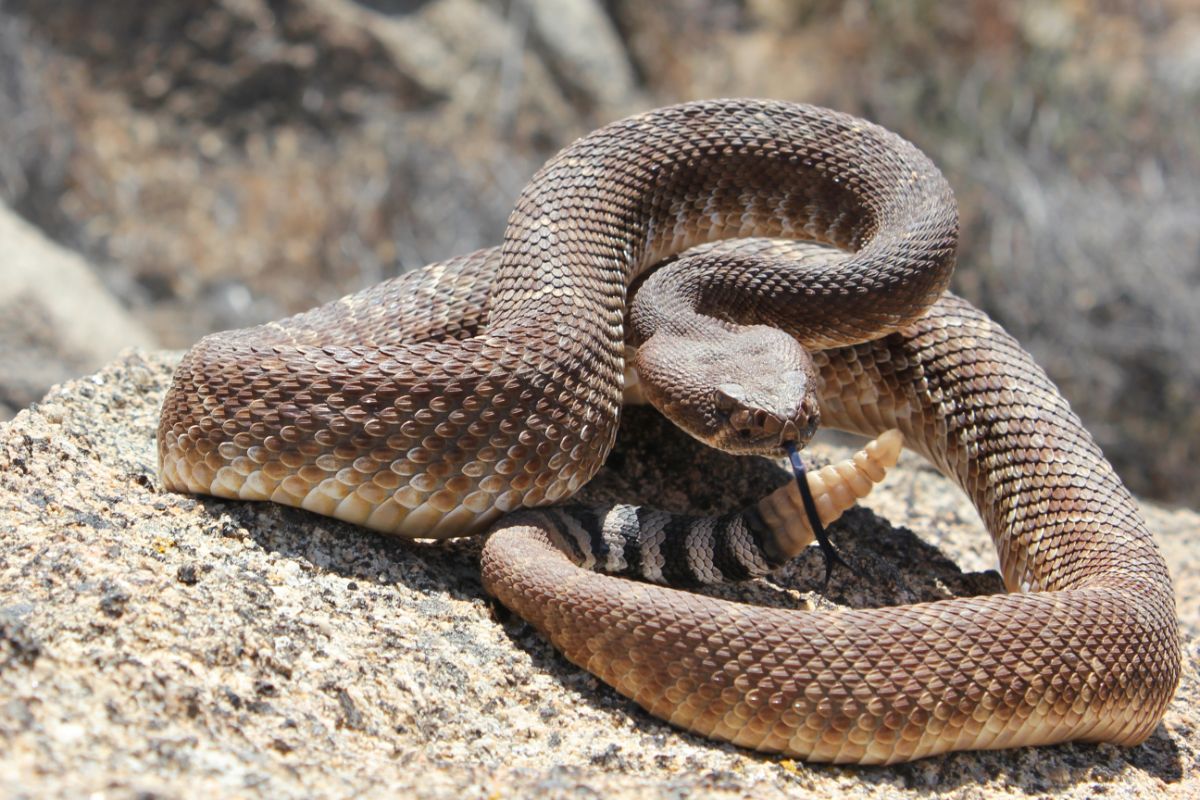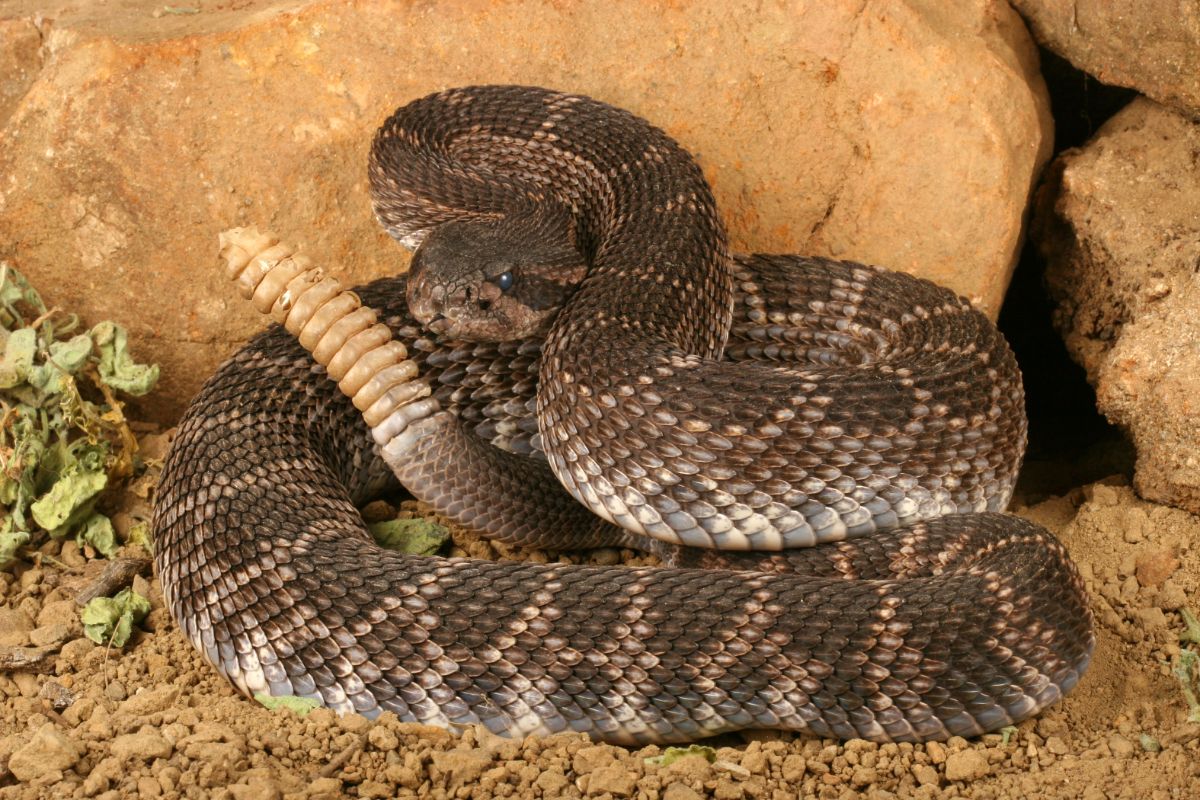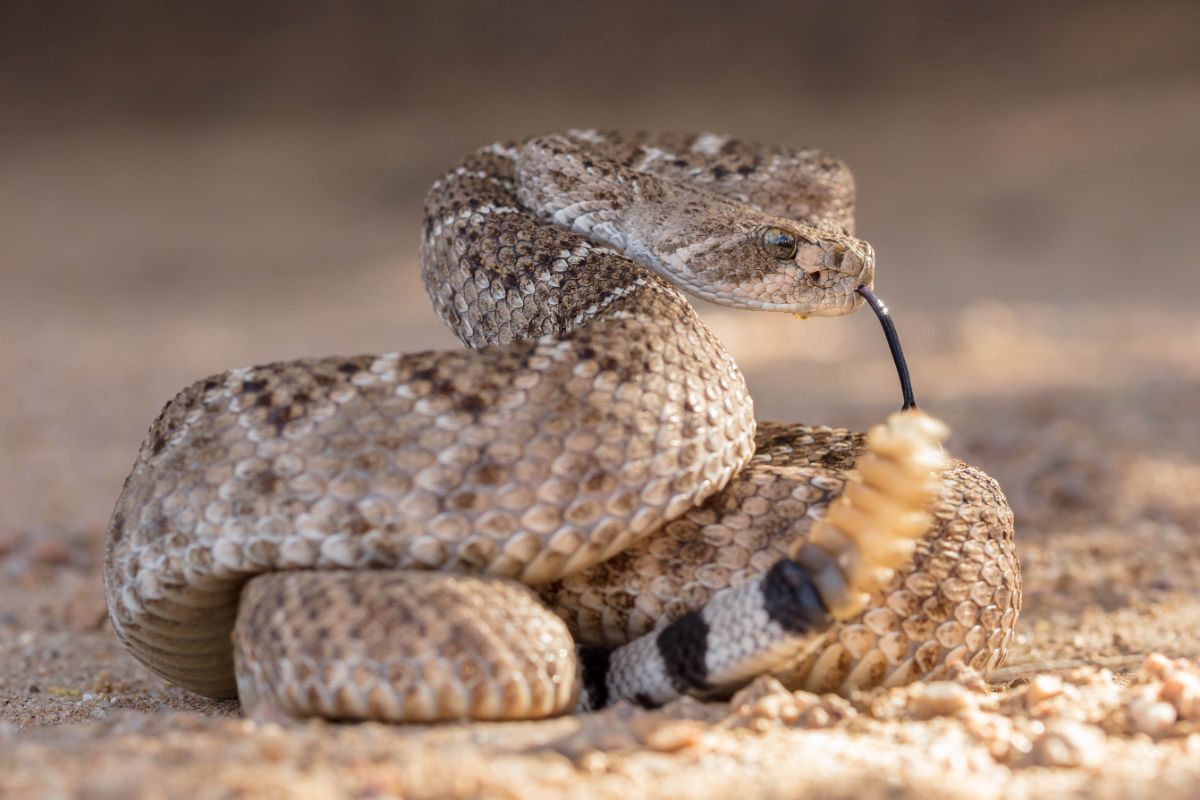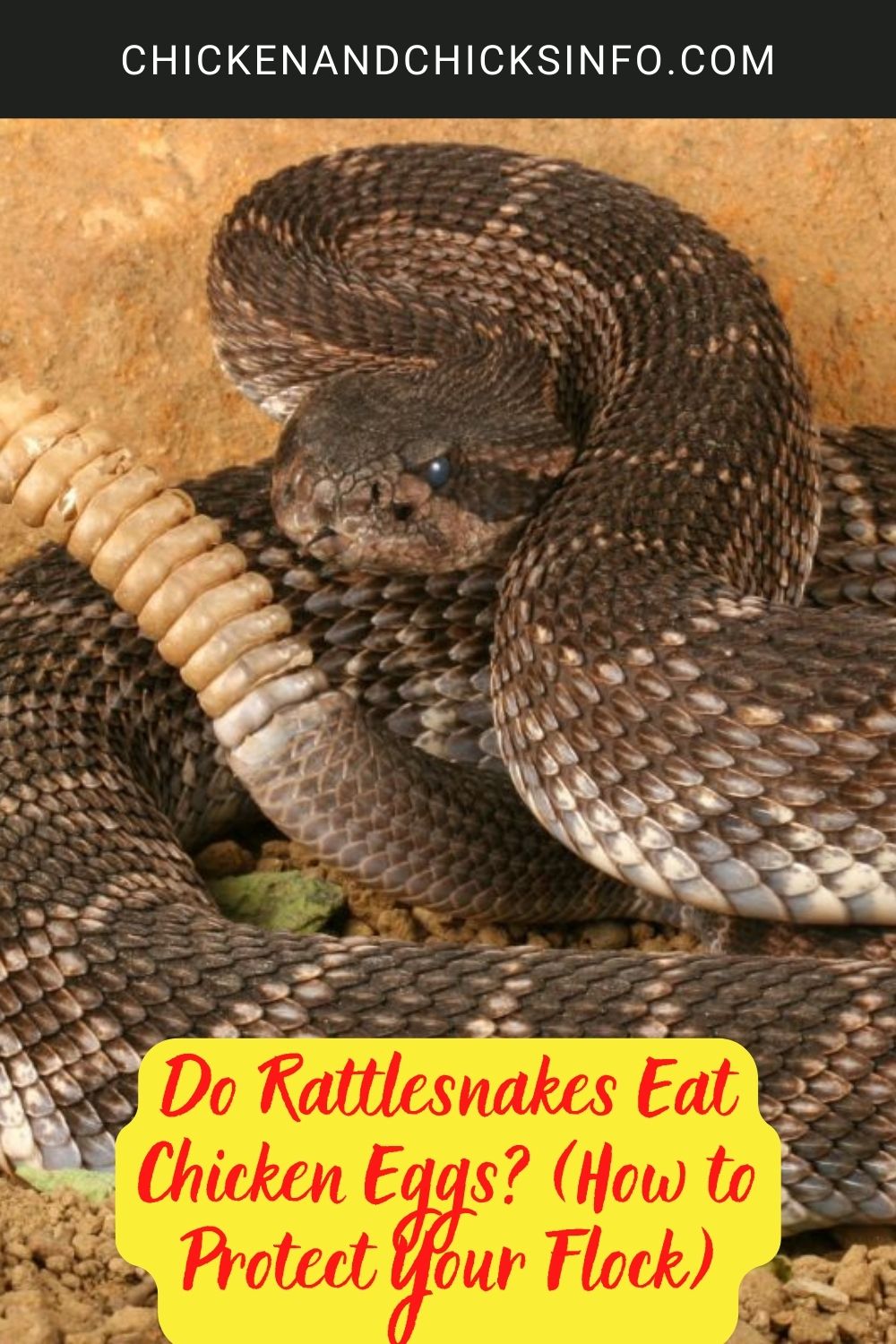
Rattlesnakes are venomous reptiles that mostly eat rodents and other small animals. It’s possible they will eat or attempt to eat a chicken egg, but it’s unlikely.
If a rattlesnake gets into a chicken coop, their first choice is going to be any chickens they think they can eat and swallow whole.
It’s often said that rattlesnakes lack the musculature to crush an eggshell, and therefore eating an egg, especially a large egg, could be harmful to them.
This may be the case, but it doesn’t change the fact that you have to snake-proof your coop so your chickens are safe at night.
Jump to:
Do Rattlesnakes Eat Chicken Eggs?
This is an interesting question, and it seems to be the topic of some debate online.
First of all, I’ve never known a rattlesnake to eat a chicken egg firsthand. So, I did some research online and asked everyone I know who may have experience on the topic.
I got back some mixed results.
Some people say rattlesnakes are not able to digest eggs, and because they are venomous snakes adept at killing live prey, they don’t want to eat eggs.
I’ve also spoken to other people and read accounts from backyard chicken owners who say they know for a fact that rattlesnakes have eaten their chicken’s eggs.
So, which is correct?
If I were to guess, I think it’s safe to say that a hungry rattler would eat an egg.
The broader picture, however, is that you don’t want rattlesnakes anywhere near your chicken’s eggs, regardless of whether they will them or not.
If you are noticing eggs are going missing, maybe you should look for other culprits first. If you have rattlesnakes in your area, your focus should be on keeping them out of your coop.
Do Chicken Eggs Attract Snakes?

A lot of chicken owners are concerned that eggs attract snakes, but I can’t find any evidence to back this up.
Snakes are opportunist scavengers, it’s more likely the smell of a coop and your chickens that attract them, and they end up stealing eggs after entering a coop.
If your chickens are breaking eggs in their coop, however, this is a different matter as a snake may well smell the yolk of the egg.
For this reason, it’s important that you do everything you can to avoid eggs breaking, and clean up any spillages as you see them.
I don’t think leaving an egg out any longer than necessary makes it more likely snakes will enter your coop though, they’ll enter anyway.
What Kind of Snake Eats Chicken Eggs?
All snakes are carnivores. Some prefer warm-blooded prey, and some prefer cold-blooded prey, but as far as I can tell, all snakes will eat eggs.
It’s not a question of whether or not a snake will eat an egg, it’s just a question of if the snake is physically big enough to gobble it up.
To give you a better idea, some species of snake found across North America that that are known egg thieves are:
- Copperheads
- Chicken snakes (this encompasses several species of snakes)
- Pythons
- King snakes
- Milk snakes
- Cottonmouths
- Various types of Rattlesnake (as covered in this article)
- Egg-eating snakes
- To name just a few
The (impressive) thing about snakes is that they’re able to eat things that look like they’d be far too big for them to get into their jaws.
This is made possible because a snake can literally unhinge their jaws and widen its mouth to eat something up to three times the size of what you’d expect.
Do Chickens Scare Away Snakes?

Chickens are not very effective when it comes to scaring away snakes.
Some breeds are better than others, and it depends on the species of snake, too. But generally speaking, snakes are dangerous predators and are not afraid of chickens.
If you want to add some fowl to your flock that is known to be good at scaring away snakes, then I recommend checking out Guinea Fowl.
Otherwise, your best defense is to be proactive and make your coop and run snake-proof.
If you’re looking for other ways to fortify your coop, snake repellents are not the best in my experience.
Snake traps work better, but you’ll need to check them often and remove any snakes.
The bottom line is that there is no substitute for making sure there is literally no way they can slither into your coop.
You also have to keep in mind that if snakes see your coop as a food source, a bigger, more dangerous snake might kill or eat your chickens, too.
In Summary
If you have rattlesnakes in your area, it’s important you’re aware that rattlesnakes pose a threat to chickens and their (your) eggs.
They are not as prolific of egg thieves as some snakes, such as milk snakes or rat snakes, but like all snakes, they are opportunistic scavengers and will take whatever they can eat.
Resources
Image credits - Photo by Duncan Sanchez on Unsplash





